Uehara Konen: Master of tranquil landscapes in Shin Hanga
Uehara Konen (1877-1940) was a Shin Hanga artist best known for his serene and atmospheric landscape prints. His works are celebrated for capturing the quiet beauty of Japan’s natural and urban environment. Here is a short dossier on his life and work.
 Bridge over Sumida river, Tokyo, Uehara Konen, 1940. Source: Wikimedia Commonsꜛ (license: public domain)
Bridge over Sumida river, Tokyo, Uehara Konen, 1940. Source: Wikimedia Commonsꜛ (license: public domain)
Biography
Uehara Konen (上原 古年), born Uehara Matsunosuke on August 16, 1877, in the Nihonbashi district of Tokyo, was a Japanese artist best known for his serene and atmospheric landscape prints within the Shin Hanga movement. Although less widely known compared to some of his contemporaries, Konen’s work is highly regarded for its refined elegance, capturing the quiet beauty of Japan’s natural and urban environments.
Konen was born into a merchant family, but his passion for art led him to pursue an artistic career. He received his early education in art at the Tokyo School of Fine Arts, where he studied Nihonga (traditional Japanese painting). This formal training provided Konen with a deep understanding of traditional Japanese aesthetics, which would later influence his work in woodblock printing.
After his studies, Konen began his career as a painter, but he soon developed an interest in woodblock printing, a medium that allowed him to explore his fascination with light, shadow, and the changing moods of nature. In the early 20th century, he became associated with the Shin Hanga movement, which aimed to revive traditional Japanese woodblock printing while incorporating modern elements.
Konen’s work quickly attracted the attention of publishers, and he began collaborating with several of them, most notably Watanabe Shōzaburō, the leading figure in the Shin Hanga movement. Konen’s prints were particularly popular for their ability to evoke a sense of tranquility and nostalgia, making them appealing to both Japanese and Western audiences.
Uehara Konen continued to produce prints until his death on June 11, 1940. His legacy as a master of landscape art within the Shin Hanga movement remains intact, and his works are admired for their quiet elegance and technical mastery.
Artistic style and significance
Uehara Konen is best known for his landscape prints, which are celebrated for their serene beauty, meticulous attention to detail, and the ability to capture the transient qualities of light and atmosphere. His work reflects a deep connection to traditional Japanese aesthetics while also incorporating elements of modernity.
Serene landscapes: A reflection of tranquility
Konen’s landscapes are characterized by their calm and contemplative mood. His prints often depict scenes of rural Japan, traditional temples, and quiet urban streets, rendered with a delicate touch that conveys a sense of peace and serenity. Konen had a particular talent for capturing the subtleties of light and shadow, which he used to create a sense of depth and atmosphere in his prints.
 Fuji ni hansen, Uehara Konen, 1900. Source: Wikimedia Commonsꜛ (license: public domain)
Fuji ni hansen, Uehara Konen, 1900. Source: Wikimedia Commonsꜛ (license: public domain)
One of the defining features of Konen’s work is his ability to evoke the changing seasons and the passage of time. His prints often depict scenes at dawn or dusk, times of day when the light is soft and the landscape is bathed in a gentle glow. This focus on the ephemeral qualities of nature reflects Konen’s deep appreciation for the beauty of the natural world and his desire to capture its fleeting moments.
Mastery of light and shadow
Konen’s use of light and shadow is one of the hallmarks of his work. He was particularly skilled at creating a sense of mood and atmosphere through the careful gradation of tones and the subtle interplay of light and dark. This mastery of light and shadow allowed Konen to convey the quiet beauty of everyday scenes, making his prints feel both intimate and timeless.
 Hatō zu, Uehara Konen, 1900. Source: Wikimedia Commonsꜛ (license: public domain)
Hatō zu, Uehara Konen, 1900. Source: Wikimedia Commonsꜛ (license: public domain)
In addition to his landscapes, Konen also created prints that depicted scenes of daily life, often focusing on the interactions between people and their environment. These works are notable for their simplicity and elegance, with each element carefully composed to create a harmonious whole.
Influence and legacy
While Uehara Konen may not be as widely known as some of his contemporaries, his contribution to the Shin Hanga movement is significant. His work helped to revive and sustain interest in traditional Japanese woodblock printing during a period of rapid modernization, and his prints continue to be appreciated for their beauty and craftsmanship.
Konen’s ability to capture the tranquil beauty of Japan’s landscapes has earned him a lasting place in the history of Japanese art. His prints remain highly valued by collectors and art enthusiasts, and they continue to inspire appreciation for the traditional aesthetics of Japanese landscape art.
Notable works
Throughout his career, Uehara Konen produced several notable prints that are considered masterpieces of the Shin Hanga movement. Here are some of his most famous works:
 Boats and houses, Uehara Konen, 1940. Source: Wikimedia Commonsꜛ (license: public domain)
Boats and houses, Uehara Konen, 1940. Source: Wikimedia Commonsꜛ (license: public domain)
 Dotonbori, Uehara Konen, 1928. Source: Wikimedia Commonsꜛ (license: public domain)
Dotonbori, Uehara Konen, 1928. Source: Wikimedia Commonsꜛ (license: public domain)
 Nikkō no gojū no tō, Uehara Konen, 1900. Source: Wikimedia Commonsꜛ (license: public domain)
Nikkō no gojū no tō, Uehara Konen, 1900. Source: Wikimedia Commonsꜛ (license: public domain)
 View of Inuyama castle, Uehara Konen, 1949. Source: Wikimedia Commonsꜛ (license: public domain)
View of Inuyama castle, Uehara Konen, 1949. Source: Wikimedia Commonsꜛ (license: public domain)
 Watashibune, Uehara Konen, 1900. Source: Wikimedia Commonsꜛ (license: public domain)
Watashibune, Uehara Konen, 1900. Source: Wikimedia Commonsꜛ (license: public domain)
 Yuki no watashiba, Uehara Konen, 1900. Source: Wikimedia Commonsꜛ (license: public domain)
Yuki no watashiba, Uehara Konen, 1900. Source: Wikimedia Commonsꜛ (license: public domain)
 Fuji over the lake, Uehara Konen, 1940. Source: Wikimedia Commonsꜛ (license: public domain)
Fuji over the lake, Uehara Konen, 1940. Source: Wikimedia Commonsꜛ (license: public domain)
 Hatō zu, Uehara Konen, 1900. Source: Wikimedia Commonsꜛ (license: public domain)
Hatō zu, Uehara Konen, 1900. Source: Wikimedia Commonsꜛ (license: public domain)
 Hatō zu (3), Uehara Konen, 1900. Source: Wikimedia Commonsꜛ (license: public domain)
Hatō zu (3), Uehara Konen, 1900. Source: Wikimedia Commonsꜛ (license: public domain)
 Houses with red roofs, Uehara Konen, 1900. Source: Wikimedia Commonsꜛ (license: public domain)
Houses with red roofs, Uehara Konen, 1900. Source: Wikimedia Commonsꜛ (license: public domain)
 Secchū mimeguri, Uehara Konen, 1900. Source: Wikimedia Commonsꜛ (license: public domain)
Secchū mimeguri, Uehara Konen, 1900. Source: Wikimedia Commonsꜛ (license: public domain)
 Ike no chaya, Uehara Konen, 1900. Source: Wikimedia Commonsꜛ (license: public domain)
Ike no chaya, Uehara Konen, 1900. Source: Wikimedia Commonsꜛ (license: public domain)
 View of an river with boats, 1940. Source: Wikimedia Commonsꜛ (license: public domain)
View of an river with boats, 1940. Source: Wikimedia Commonsꜛ (license: public domain)
 Uchū no sinkyō, Uehara Konen, 1900. Source: Wikimedia Commonsꜛ (license: public domain)
Uchū no sinkyō, Uehara Konen, 1900. Source: Wikimedia Commonsꜛ (license: public domain)
Conclusion
Uehara Konen is remembered as a master of tranquil and atmospheric landscapes within the Shin Hanga movement. His prints, characterized by their serene beauty, meticulous attention to detail, and mastery of light and shadow, continue to be celebrated for their ability to evoke the quiet elegance of Japan’s natural and urban environments. Konen’s work remains highly valued by collectors and art enthusiasts, ensuring his lasting place in the history of Japanese woodblock printing.
References and further reading
- Chris Uhlenbeck, Jim Dwinger, Philo Ouweleen, Shin Hanga - Die »Neuen Drucke« Japans 1900-1950, 2022, Hatje Cantz, ISBN: 9783775752190
- viewingjapaneseprints.netꜛ
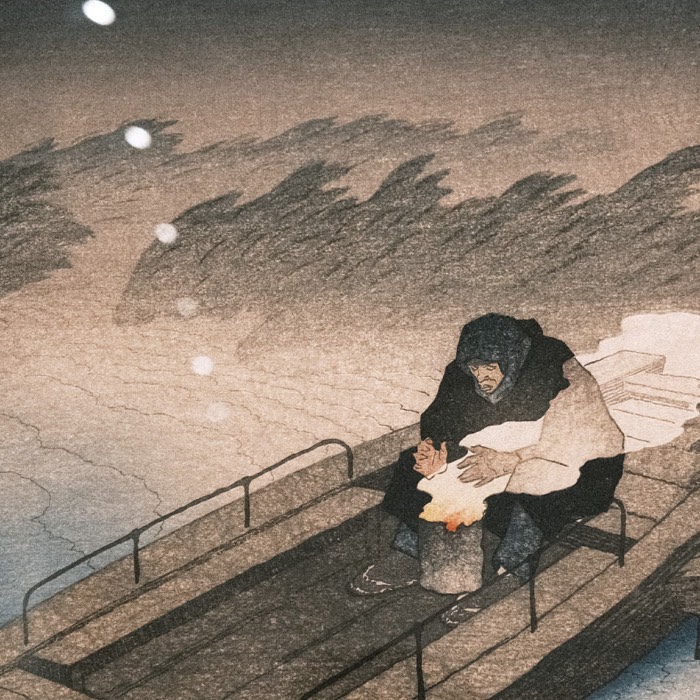
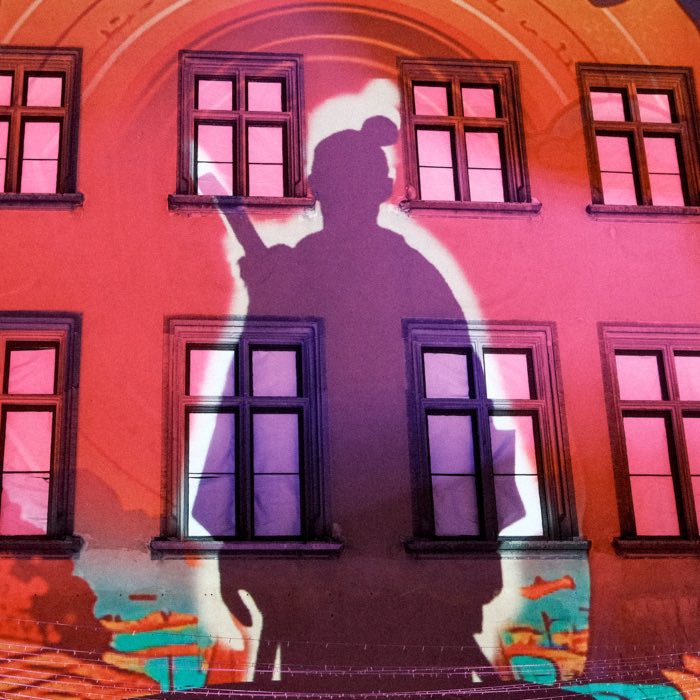
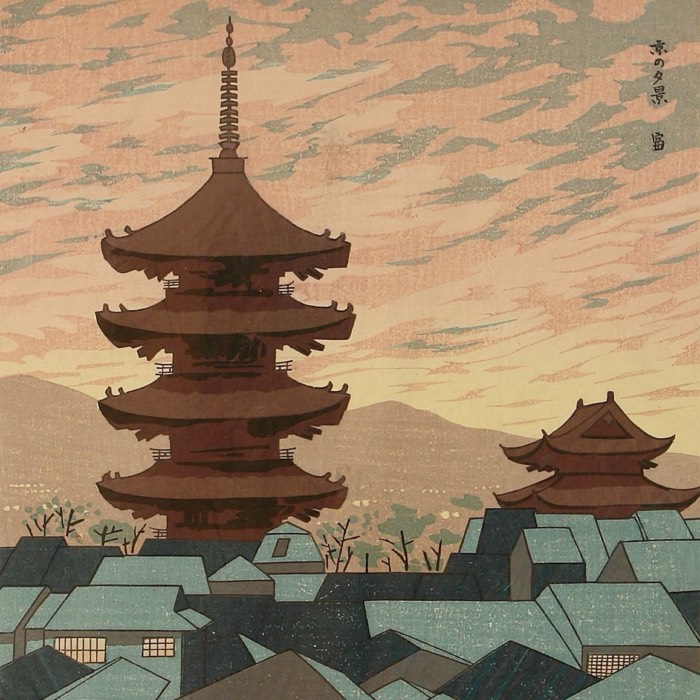
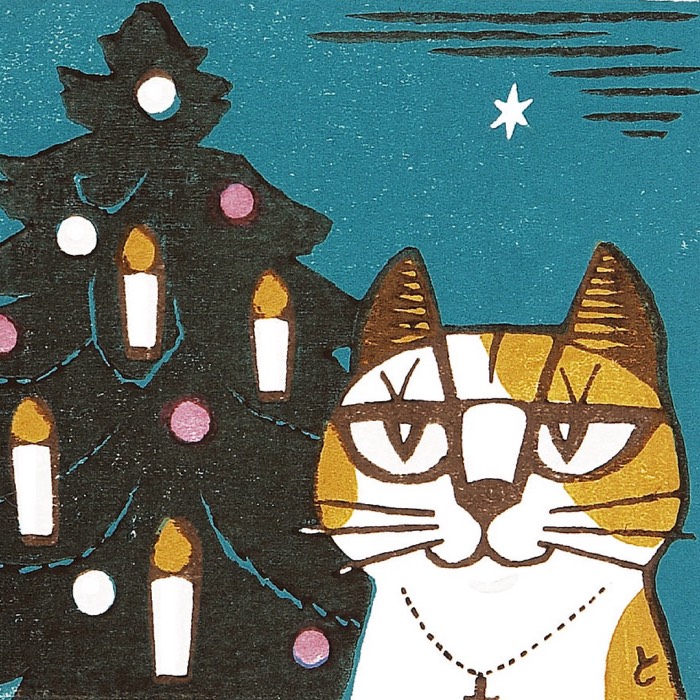
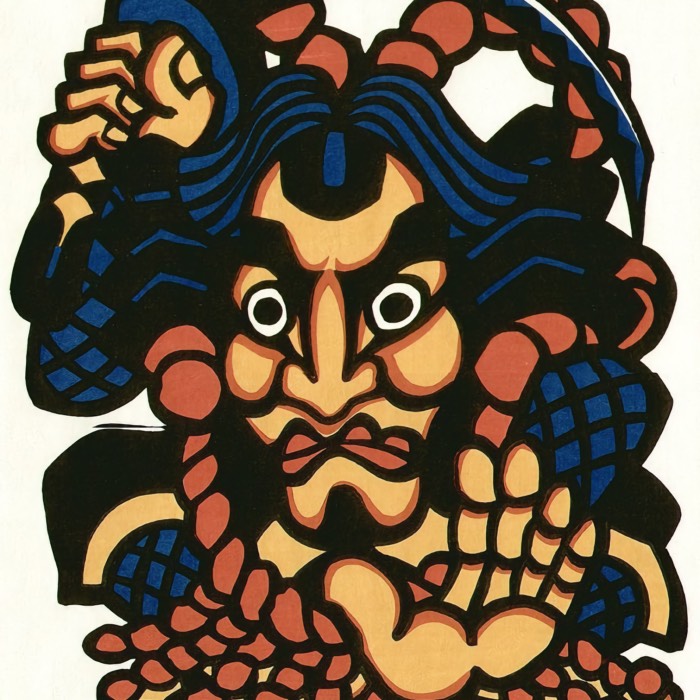
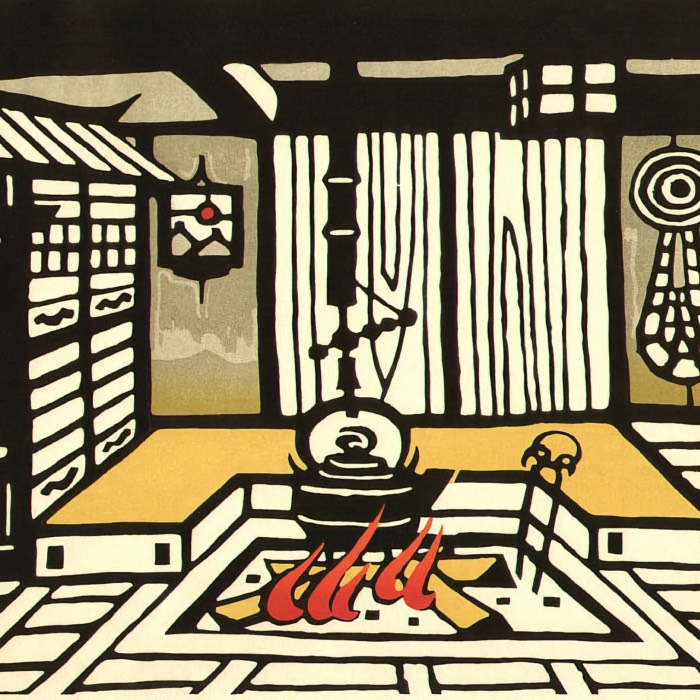
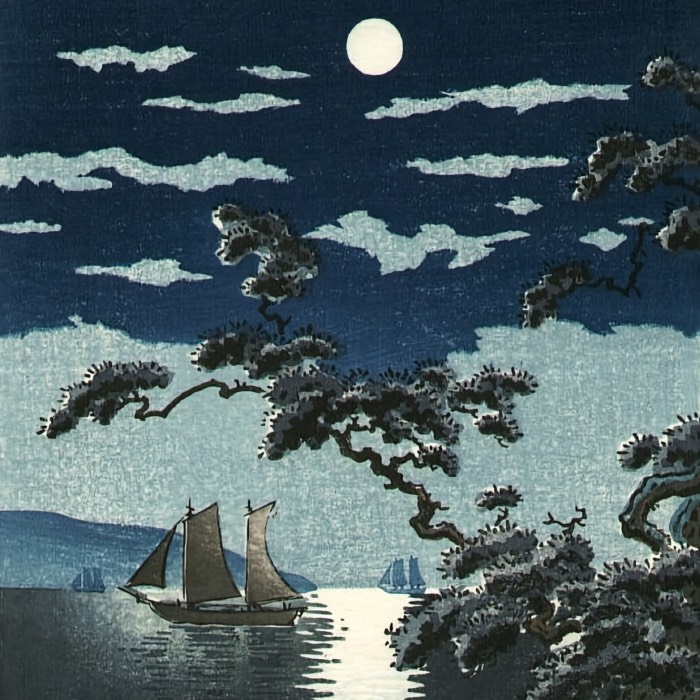
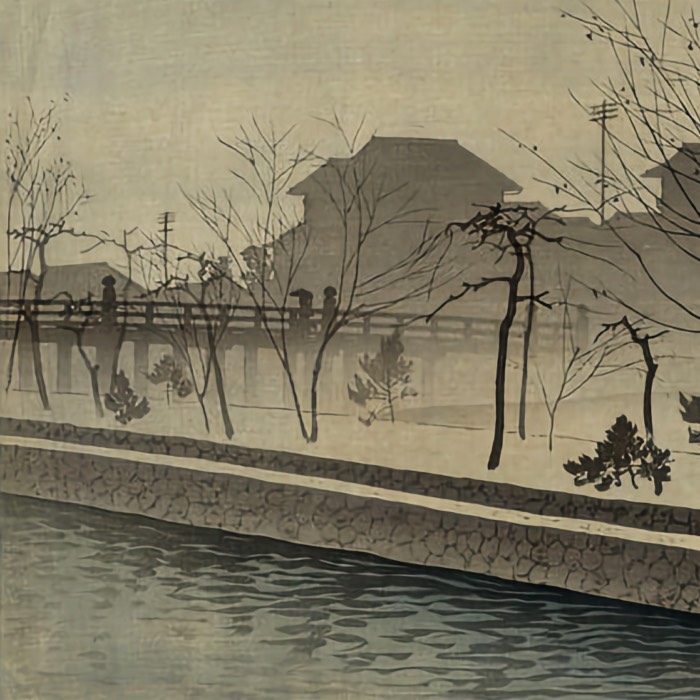
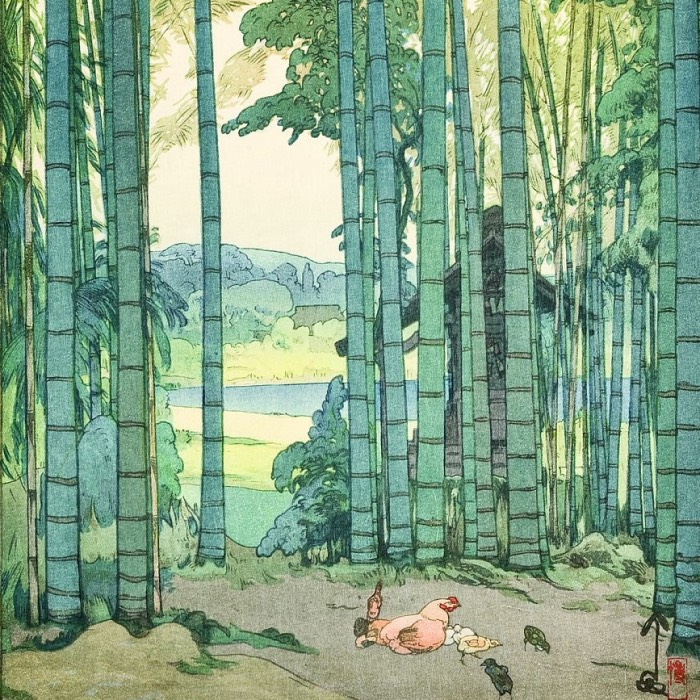
comments